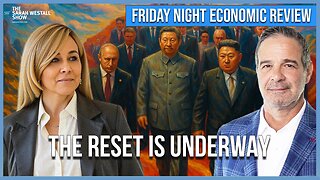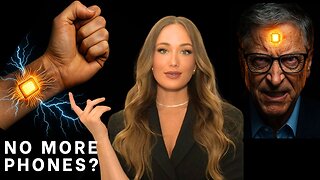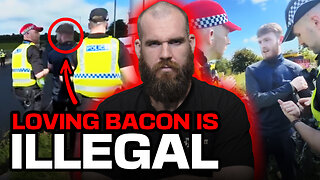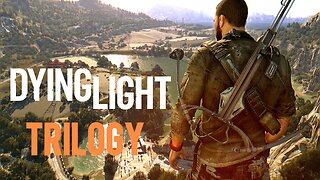Premium Only Content

🎬 "Top 5 Horrible Bosses in Movies That'll Make You Appreciate Yours! | National Boss's Day Special"
In honor of National Boss's Day, we're diving into the dark side of leadership with HINESight Entertainment's top five picks for the most horrible bosses in movie history. From power-hungry execs to nightmare micromanagers, these characters embody everything we hope our bosses aren't. Watch these clips and see if these tyrants remind you of someone you know!
5 "Office Space" (1999)
Starring: Ron Livingston as Peter Gibbons, Gary Cole as Bill Lumbergh, Jennifer Aniston as Joanna, Stephen Root as Milton Waddams
Why He's Horrible: Bill Lumbergh is the classic soul-sucking, passive-aggressive boss we all fear. Lumbergh embodies everything wrong with corporate culture with his monotone voice and constant micromanagement. From forcing his employees to work weekends to his infamous "Yeah, I'm gonna need you to come in on Saturday" line, he's a nightmare in a coffee-stained mug.
Scene Stealer: Watch out for his endless demands about the TPS reports!
4 "The Devil Wears Prada" (2006)
Starring: Meryl Streep as Miranda Priestly, Anne Hathaway as Andy Sachs, Emily Blunt as Emily Charlton, Stanley Tucci as Nigel
Why She's Horrible: Miranda Priestly is the icy editor-in-chief who runs her team ragged with impossible demands. Miranda, known for her soul-crushing stare and relentless perfectionism, pushes her assistant, Andy, to the brink of exhaustion. The film brilliantly captures the toxic culture of fashion's cutthroat world, embodied in one terrifying boss who can destroy you with a single look.
Scene Stealer: Miranda's dismissal of Andy's efforts with her iconic "That's all" sends chills down your spine.
3 "Horrible Bosses" (2011)
Starring: Jason Bateman as Nick Hendricks, Charlie Day as Dale Arbus, Jason Sudeikis as Kurt Buckman, Kevin Spacey as Dave Harken, Jennifer Aniston as Dr. Julia Harris, Colin Farrell as Bobby Pollitt
Why They're Horrible: This film features not one but three nightmare bosses, each with their brand of awful. Dave Harken is a controlling psychopath, Dr. Julia Harris is a manipulative predator, and Bobby Pellitt is a drugged-out nepotist who makes life hell for his employees. Watching these three friends hatch a plan to take down their terrible bosses is a cathartic experience for anyone who's ever suffered in a toxic workplace.
Scene Stealer: Dave Harken's meltdown over an employee getting promoted is an unforgettable mix of rage and insanity.
2 "The Wolf of Wall Street" (2013)
Starring: Leonardo DiCaprio as Jordan Belfort, Jonah Hill as Donnie Azoff, Margot Robbie as Naomi Lapaglia, Matthew McConaughey as Mark Hanna
Why He's Horrible: Jordan Belfort epitomizes corporate greed and excess. As a boss, he encourages reckless behavior, breaks every ethical boundary, and manipulates his employees with promises of riches, leading them into a life of corruption and crime. His high-energy sales techniques and unrelenting ambition create a chaotic, toxic workplace where anything goes—as long as it makes money.
Scene Stealer: Belfort's infamous chest-thumping chant with his team is as hypnotic as disturbing.
1 "Glengarry Glen Ross" (1992)
Starring: Al Pacino as Ricky Roma, Jack Lemmon as Shelley Levene, Alec Baldwin as Blake, Ed Harris as Dave Moss, Alan Arkin as George Aaronow, Kevin Spacey as John Williamson
Why He's Horrible: Alec Baldwin's Blake doesn't get much screen time, but his presence is searing. In a blistering monologue, he delivers a brutal "motivational speech" that crushes the spirits of the real estate salesmen he's supposed to inspire. His mantra? "Always Be Closing. "Blake's callousness and relentless pressure to perform, no matter the cost, make him one of the most chilling bosses in cinematic history.
Scene Stealer: The iconic "coffee is for closers" speech is a gut punch that sets the tone for the entire film.
💡 HINESight Insights:
What is Empathy in Leadership?
Empathy in leadership is all about understanding and connecting with your team on a deeper level. Empathetic leaders know that recognizing and validating emotions builds stronger teams and increases productivity.
Why is Empathy Important?
Empathy fosters open communication, supports a positive work environment, and ultimately leads to a happier, more engaged team. Empathetic leaders inspire loyalty and innovation by showing they care more than just the bottom line.
Types of Empathy in Leadership:
1 Cognitive Empathy: Understanding someone's perspective intellectually.
2 Emotional Empathy: Feeling what others feel, creating a personal connection.
3 Compassionate Empathy: Taking action to help someone who's struggling.
#NationalBossDay, #WorstBosses, #Top5BossesMovies, #EmpathyInLeadership, #HorribleBosses, #LeadershipLessons, #MovieClips, #WorkplaceCulture, #BadBosses, #BossAppreciation, #HINESightEntertainment, #LeadershipTips, #OfficeLife, #BossLife, #HappyBossDay, #EmpatheticLeadership
-
 LIVE
LIVE
Sarah Westall
1 hour agoRead the Signs: Are We Already Operating in a New Financial System? w/ Andy Schectman
163 watching -
 LIVE
LIVE
SpartakusLIVE
2 hours agoNEW Update - BROKEN Attachment || Viewers REJOICE at the long-awaited Return of Their KING
478 watching -
 1:14:07
1:14:07
Glenn Greenwald
6 hours agoGlenn Takes Your Questions: Billionaires, Bari Weiss and Journalism | SYSTEM UPDATE #509
45.9K11 -
 LIVE
LIVE
StevieTLIVE
47 minutes agoFriday Night HYPE Warzone Games with Stevie
84 watching -
 LIVE
LIVE
SavageJayGatsby
21 hours agoLet's Play: Sea of Thieves | Friend Friday
85 watching -
 LIVE
LIVE
GritsGG
1 hour agoTop 250 Ranked Grind! Dubulars!🫡
87 watching -
 19:51
19:51
Robbi On The Record
22 hours agoElectronic Tattoos Measuring Thoughts? From iPhone to iSkin
11.6K14 -
 8:12
8:12
Hollywood Exposed
1 day agoJoy Behar Tried To Shame Tulsi Gabbard And Instantly FAILED
17 -
 17:03
17:03
IsaacButterfield
16 hours ago $0.12 earnedBritish Man ARRESTED for Saying ‘I Love Bacon’ to a Muslim!!
8833 -
 LIVE
LIVE
The Sufari Hub
1 hour ago🔴SUFARI & JAMES TAKE ON THE UNDEAD - DYING LIGHT THEN THE FOLLOWING
11 watching